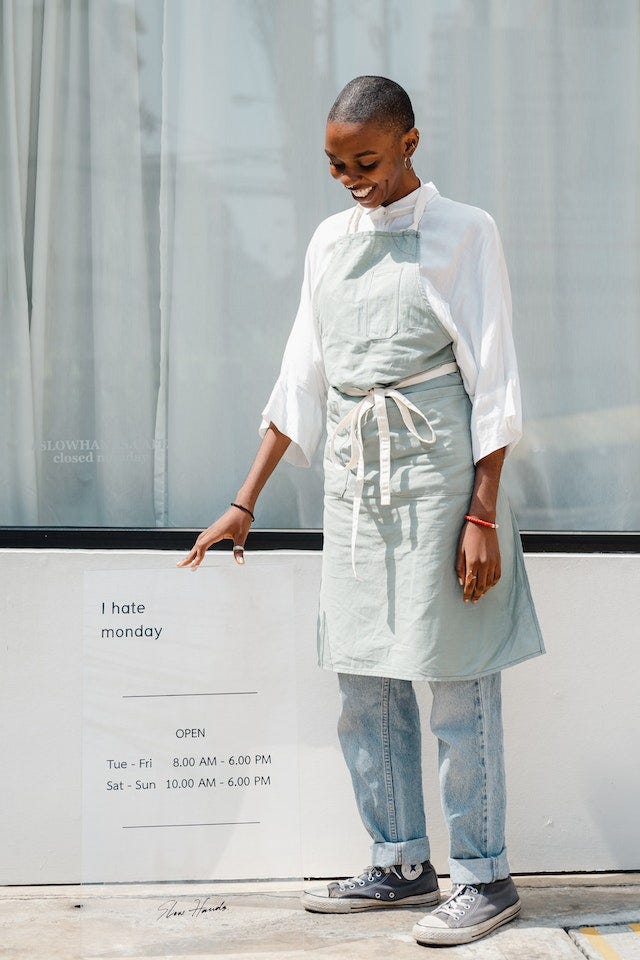Barely Grasping Bare Minimum Monday
"Employees are tired of trading their well-being to perform well at work"
Bare Minimum Monday, at first blush, lines up with Quiet Quitting and the Great Resignation. If you look at how the idea got started, however, like Brigid Kennedy does in this morning’s edition of The Week, there’s more to it.
Bare Minimum Monday was never intended to be a slacker battlecry. Marisa Jo Mayes, the self-employed Tik Toker who coined the phrase, simply labeled the practice of taking a couple of hours for self-care — letting go of guilt about what may’ve felt like an unproductive weekend — before engaging in focused, mindful, productive tasks for the remainder of her Monday.
Trading Wellbeing for Performance
Taken this way, Bare Minimum Monday simply reframes bestsellers, popular memes, and 4-day workweek evangelism promoting healthy roads to personal productivity.
Buried in the article is a quote from Mayes, drawn from a piece in the NY Post, that should give pause to business tycoons, HR mucky mucks, and the usual cast of self-anointed thought leaders:
“The tide is turning, and I feel like employees are tired of trading their well-being to perform well at work.”
Trading wellbeing for performance. Hidden in Mayes assumption is a premise that runs counter to the articles of faith chiseled into the wellbeing marketplace.
We assume wellbeing and productivity move in lockstep. The more wellbeing, the more productivity; the more productivity, the more wellbeing. Mayes suggests the opposite holds true.
I’ve often wondered — I’m not the only one — if wellbeing is a currency. We offer it in exchange for our productivity. Work comes with some inherent cost to wellbeing.
I don’t have much science to back me up, though those who blithely proclaim, “A happy worker is a productive worker,” don’t have science on their side, either. Any study of the Happy Productive Worker hypothesis reveals that much.
That said, based on everything I know about work and wellbeing, I believe the relationship, broadly speaking for the workforce, looks something like this:
Work, in the case of this is illustration, represents workload, work intensity, and time-at-work. There’s plenty of reason to believe work is important to our identity, our social network, and, consequently, our wellbeing. But, at some point, it drains us. And our performance inevitably plummets. (We know this is true, in many occupations, of work schedules beyond 8-hour days or 40-hour weeks).
Of course, there are confounders like levels of autonomy, work-life conflict, flexibility, job fit, effort/rewards, equity, social support, social determinants of health, and the rest.
Let’s not dismiss too easily — with cranky old axioms like “nobody wants to work any more” — Bare Minimum Monday advocates and others who dare to question our work/wellbeing ideology.
(The graph is more top-of-my-head guesswork compared to evidence-based content I usually share. We’re still a small group, but I’d love your feedback in the Comment section.)
Coming Soon to an In-Box Near You: Music at Work
My piece on music at work, one in a series looking at work through the lens of Snow White, is taking longer than I expected. There’s so much research and so many ways of looking at it. So I whipped out today’s post of Heigh Ho in the interim, to tide us over. To whet your appetite, here are results of my LinkedIn poll, with nearly 1,000 respondents (pollster talk: by “nearly 1,000,” I mean 25):
If you enjoy fun, unusual ad-free articles about work, workplaces, and worker wellbeing, subscribe to Heigh Ho.
Already a subscriber? Please support this work by sharing with your network:







